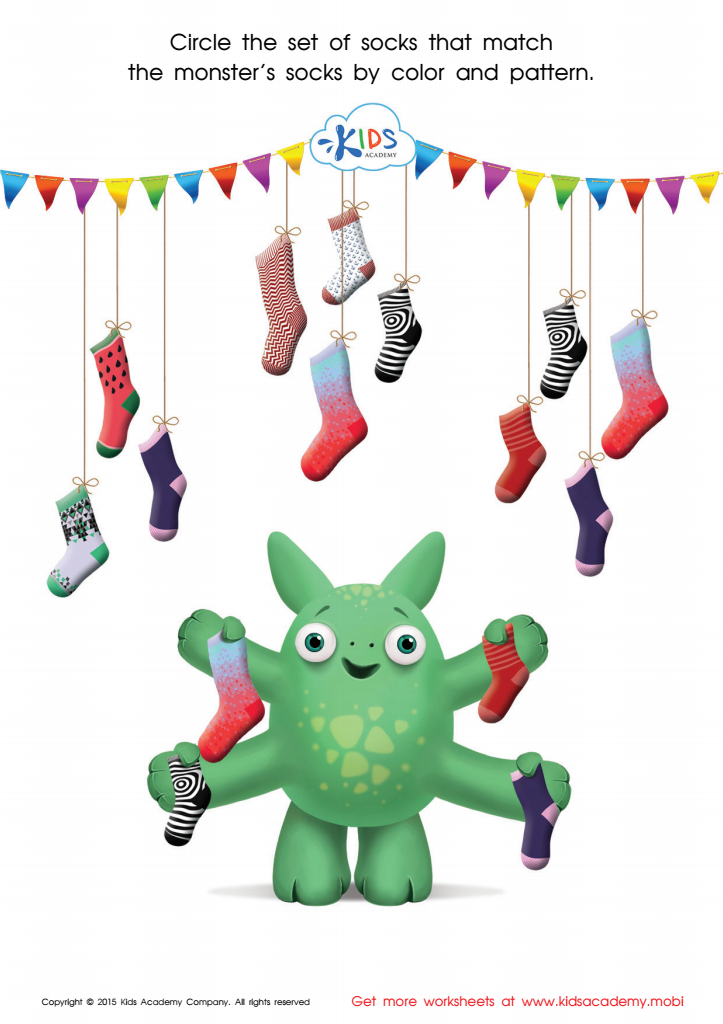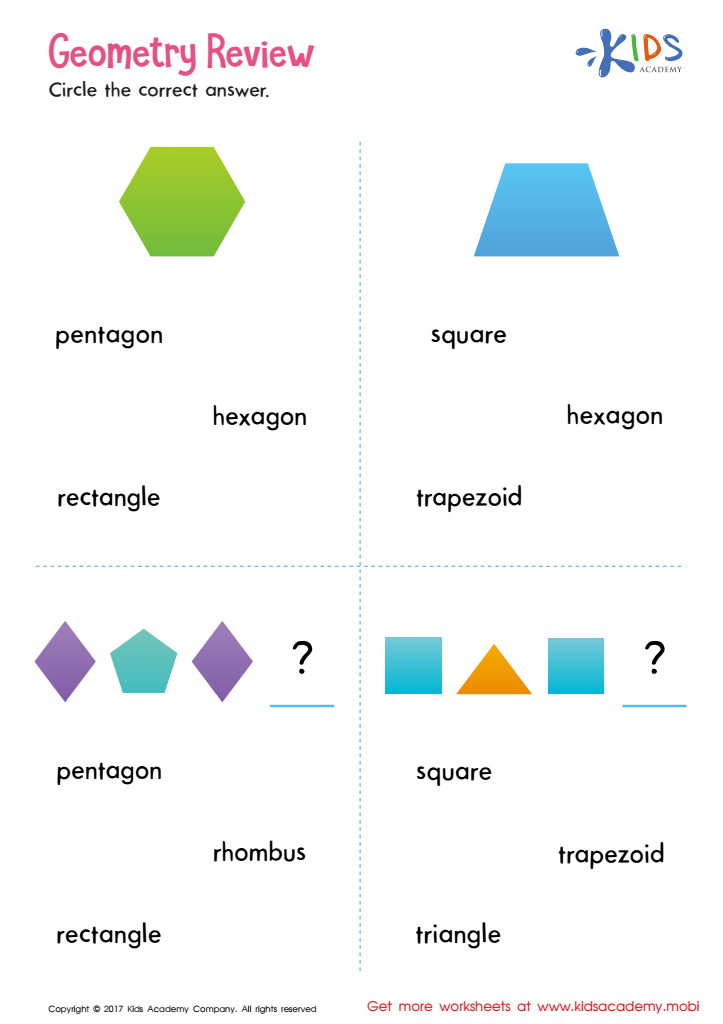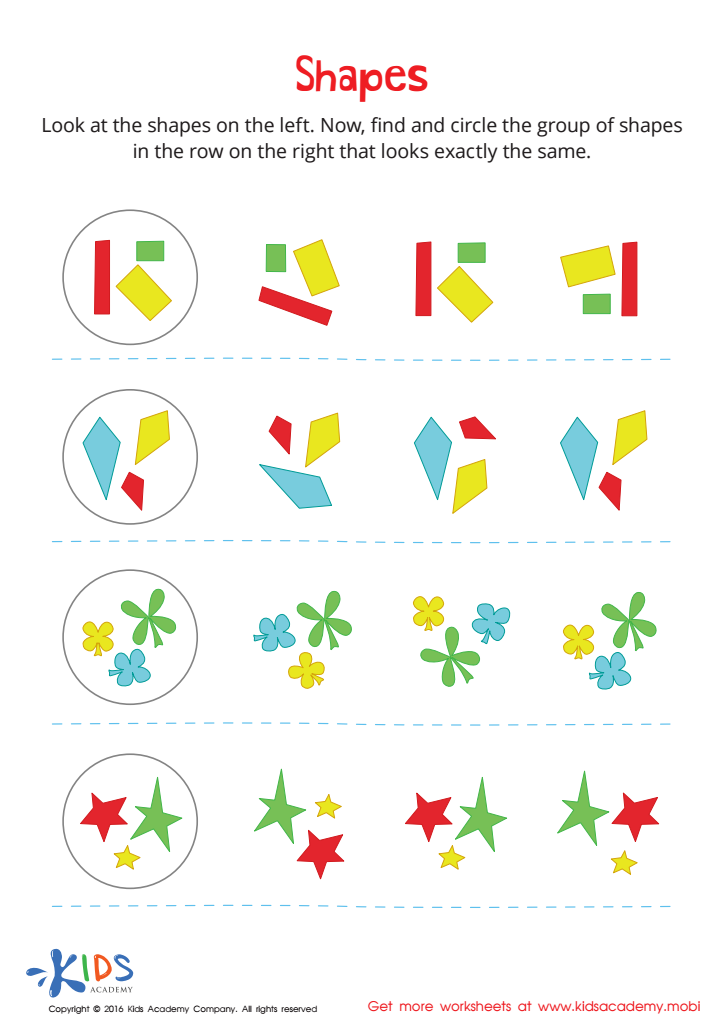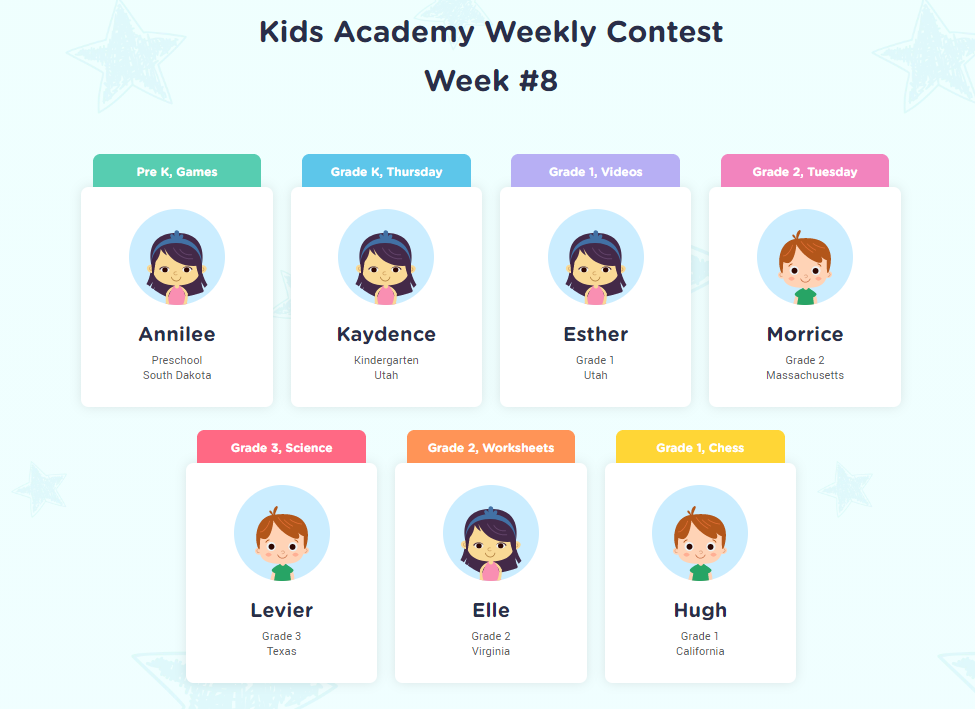Shape identification Extra Challenge Worksheets for Ages 3-4
3 filtered results
-
From - To
Unlock your child's potential with our Shape Identification Extra Challenge Worksheets for ages 3-4! Designed to enhance cognitive development, these engaging worksheets introduce young learners to various shapes in a fun and interactive way. With colorful illustrations and age-appropriate activities, children will hone their spatial awareness and vocabulary while enjoying exciting challenges. Perfect for parents and educators alike, our worksheets promote critical thinking skills and are an excellent supplement to early childhood learning programs. Empower your little ones to recognize and differentiate shapes with confidence. Start the adventure of shape identification today and watch them thrive!


Sort the Monster's Socks Worksheet


Geometry Review Printable


Shapes Worksheet
Shape identification is a fundamental skill for children aged 3 to 4, laying the groundwork for cognitive development, problem-solving abilities, and spatial awareness. Engaging with shape identification challenges fosters not only recognition of different shapes but also enhances critical thinking as children categorize and differentiate between them.
For parents and teachers, facilitating shape identification activities offers a fun, interactive way to promote early mathematical skills, which are crucial for future academic success. Young children learn best through play and exploration; by integrating patterns, sorting games, and creative arts, educators can harness this learning age effectively.
Moreover, shape identification encourages communication skills, as children learn to describe shapes and their attributes to others. This process fosters social skills and teamwork when done in group settings. Encouraging this skill also helps in advancing fine motor skills, particularly when children engage in tasks like drawing, cutting, or constructing.
In summary, Shape Identification Extra Challenge activities stimulate multiple areas of development, promote engagement, and prepare children for more complex concepts in math and science later on. Thus, parents and teachers should actively incorporate these challenges into early curricula to support holistic growth in young learners.

 Assign to My Students
Assign to My Students
















